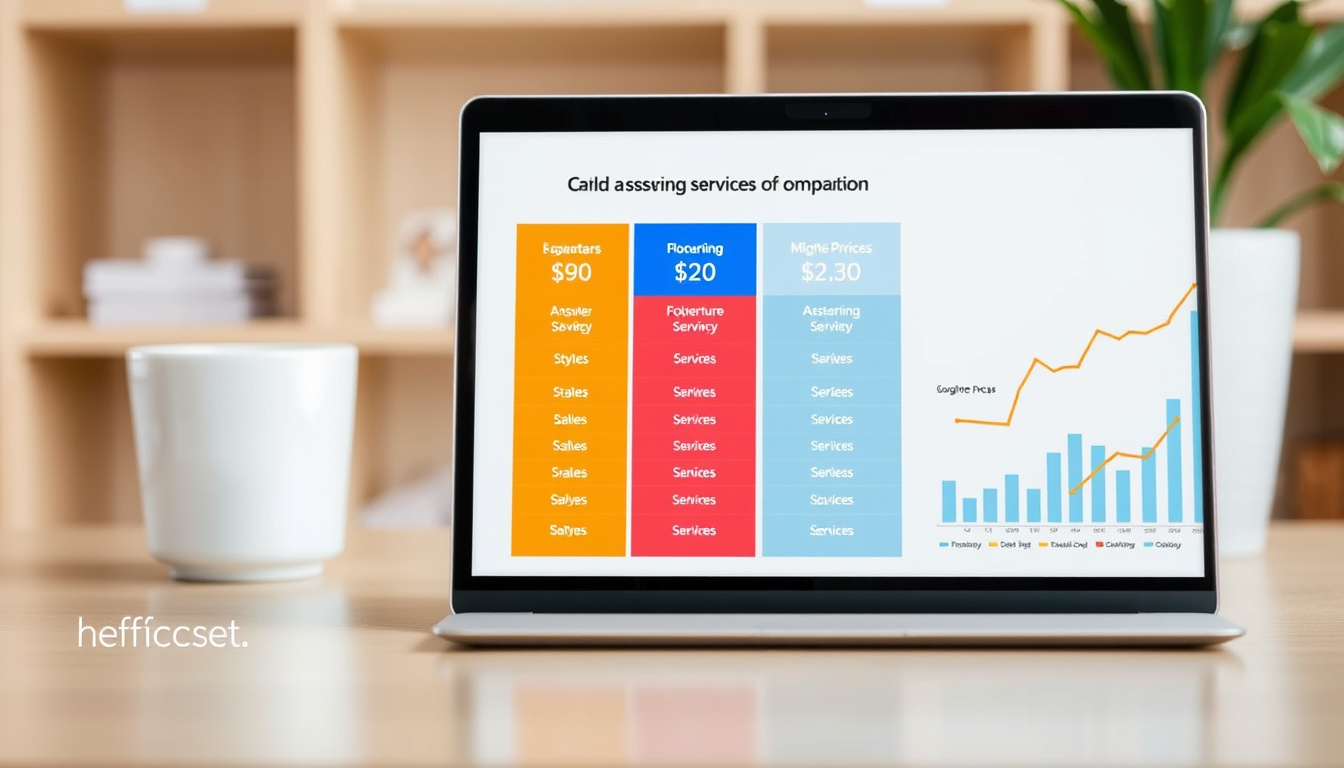In today’s business world, speed matters. Companies need to keep customer service active 24 hours. They often use call centers that answer all calls. This need makes understanding answering service rates key. Whether you own a small shop or run a large firm, knowing how rates work and who to choose can change your work and cost.
This article explains answering service rates. It helps you choose a provider that meets your needs.
What Are Answering Service Rates?
Answering service rates are fees set by call centers to handle your calls. Calls, call length, service details, and extras like scheduling or bilingual support affect these fees.
Outsourcing your call answers lets you focus on core work. It also makes sure customers are heard fast, which boosts satisfaction and revenue.
Types of Answering Service Rates
You must know the types to compare providers. Rates usually fall into three groups:
-
Per-Call Pricing
You pay a set fee for each call. This plan fits businesses with uneven call numbers. -
Per-Minute Pricing
Charges depend on the time spent on calls. It suits firms with calls of different lengths. -
Monthly Subscription Plans
A fixed fee covers many calls or minutes each month. This is best for steady call volumes.
Sometimes, providers create custom plans for needs like after-hours support or technical help.
Factors That Affect Answering Service Rates
Several elements here set the cost:
- Call Volume: More calls can bring lower rates.
- Call Duration: Long calls may cost more, especially when pricing by minute.
- Service Complexity: Extra services such as order taking or tech support add to the fee.
- 24/7 Availability: Round-the-clock help usually costs more than daytime service.
- Industry Needs: Special rules or training, like HIPAA for healthcare, lift costs.
- Location: Providers in high-cost regions may charge more.
Know your call numbers and needs to get clear quotes.
How to Choose the Best Answering Service Provider
Choosing the right provider needs more than just rate comparisons. Keep these points in mind:
1. Evaluate Your Business Needs
Decide what you want—basic call answers, customer support, lead capture, or scheduling. Set clear priorities to pick the right features.
2. Analyze Pricing Structures
Don’t only look at per-call or per-minute fees. Check if the packages suit your call level and if the costs are clear with no hidden fees.
3. Check for Scalability
Your business may grow or slow down at times. Choose a provider who can adjust without steep hikes in price.
4. Review Technology and Integration Capabilities
Modern services offer CRM ties, call routing, and dashboards. These tools can boost your workflow and give useful info.

5. Verify Quality and Reliability
Read reviews or ask for customer feedback. A low price is not worth it when service quality suffers.
6. Consider Customization Options
A provider who customizes scripts and workflows to match your brand adds real value.
Typical Answering Service Rates: What to Expect
Here is a rough look at industry rates (exact prices may change):
| Pricing Model | Typical Range |
|---|---|
| Per-Call Pricing | $0.70 to $2.00 per call |
| Per-Minute Pricing | $0.40 to $1.20 per minute |
| Monthly Subscription | $50 to $500+ depending on volume |
Extra fees such as setup costs, after-hours fees or charges for extras like scheduling may apply.
Tips to Optimize Your Answering Service Costs
• Estimate your calls well. Monitor calls over time to pick the best plan.
• Streamline calls with efficient scripts to shorten their time.
• Negotiate custom plans. Providers can adjust plans to your needs.
• Avoid paying for extra features you do not need.
• Check call reports often to cut out unnecessary calls.
Frequently Asked Questions (FAQs)
What are typical answering service rates for small businesses?
Small firms usually pay between $0.70 and $1.50 per call for basic services. Alternatively, monthly plans can run from $50 to $200. The exact cost depends on volume and features.
How can understanding answering service rates help in budgeting?
Knowing the rates helps you plan costs, avoid extra fees, and choose a plan that matches your call numbers and needs.
Are there any hidden costs in answering service rates?
Some firms add setup fees, extra charges for after-hours support, or fees for extras like scheduling. Always read the contract closely.
Why Transparent Answering Service Rates Matter: Insights from Industry Experts
Experts like Zendesk say clear pricing builds customer trust. When rates and terms are open, surprises vanish. This clarity helps build long-term working ties.
Conclusion: Making the Right Choice on Answering Service Rates
Your phone answer strategy depends on a clear grip of answering service rates. Study your needs, compare pricing models, and check factors like scale and quality. This way, you get a provider who balances cost and performance well.
Do not choose the cheapest or priciest option alone. Look for clear terms, reliable service, and features that truly match your work.
Ready to boost your customer service without high costs? Contact top answering service providers today. Compare quotes and pick a partner who keeps your business connected—each call counts.


